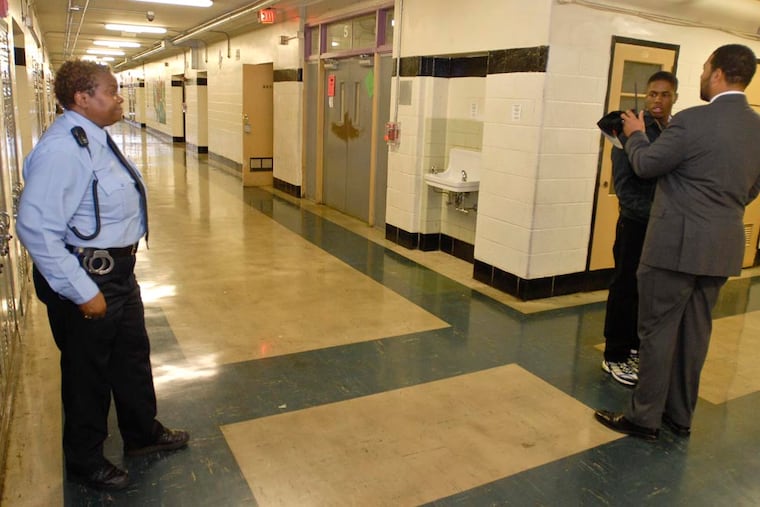If LA can defund its school police, so can Philadelphia | Opinion
In Los Angeles, funds will be diverted from the school police force and into programs to support academic achievement, including school nurses and counselors.

The Los Angeles Board of Education recently approved a plan that cuts a third of its officers, bans the use of pepper spray on students, and diverts funds from the department to improve the education of Black students.
The plan calls for a reduction in force of more than 100 officers, resulting in a boon of $25 million to be diverted from the school police force and into programs to support academic achievement, including school nurses and counselors.
Here in Philadelphia, the district employs its own police force of more than 350 officers at a cost of $31 million, at a time that sees the School District reeling in the wake of COVID-19 and facing a budget shortfall of nearly $60 million.
» READ MORE: Do police belong in schools? | Pro/Con
Last summer, after George Floyd was murdered, a petition was started for #PoliceFreeSchools, a movement that gained even greater traction after the murder of Walter Wallace Jr. in November.
Meanwhile, school safety chief Kevin Bethel has tried to reassure those distrustful of school police that his new team of school officers will be retrained with a refocus on de-escalation rather than incarceration. Since students in the district only this week returned to the classroom — and very few of them — it remains to be seen how the training will be implemented in the real world.
But a rose by any other name is still a rose, and when the only tool you have is a hammer, everything looks like a nail.
Officers, armed or not, are agents of authorized power with a legacy of violence. Where officers go, the message also goes that one had better watch their step. No child can learn when they do not feel safe, and no school police officer patrolling the halls denotes safety; rather, they denote a walking threat. In my years of experience as a teacher, I have personally seen school police officers throw students up against the wall, handcuff them, and then throw them into cells located just down the hall from the principal’s office.
It is noteworthy that not all schools apparently need school police officers. No school in the city’s largest charter network, Mastery Charter Schools, has school police officers patrolling the halls. No parochial or private school that I know of has school police officers patrolling the halls. No wealthy suburban school that I know of has school police officers patrolling the halls.
» READ MORE: Philly’s new school police chief pledges less law-and-order, more mentoring of students
So what does it mean if a school district refuses to de-police its schools? It means that they believe that certain students, certain children, need policing. To be clear, it means that the district and any other supporters of school police officers patrolling the halls believe that Philly public school students, mostly children of color who attend underresourced schools and have been marginalized by systemic inequities, need policing.
You know what that’s called? Racial tyranny.
If Los Angeles, another large, poor, urban school district with complicated systemic issues, can defund their school police, so can Philadelphia. The time is now.
Zachary Wright is an education activist with the brightbeam network and an assistant professor of practice at Relay Graduate School of Education serving Philadelphia and Camden. A 2013 Philadelphia Outstanding Teacher of the Year, Wright formerly taught 12th-grade world literature and AP literature at Mastery Charter School Shoemaker Campus, Philadelphia.